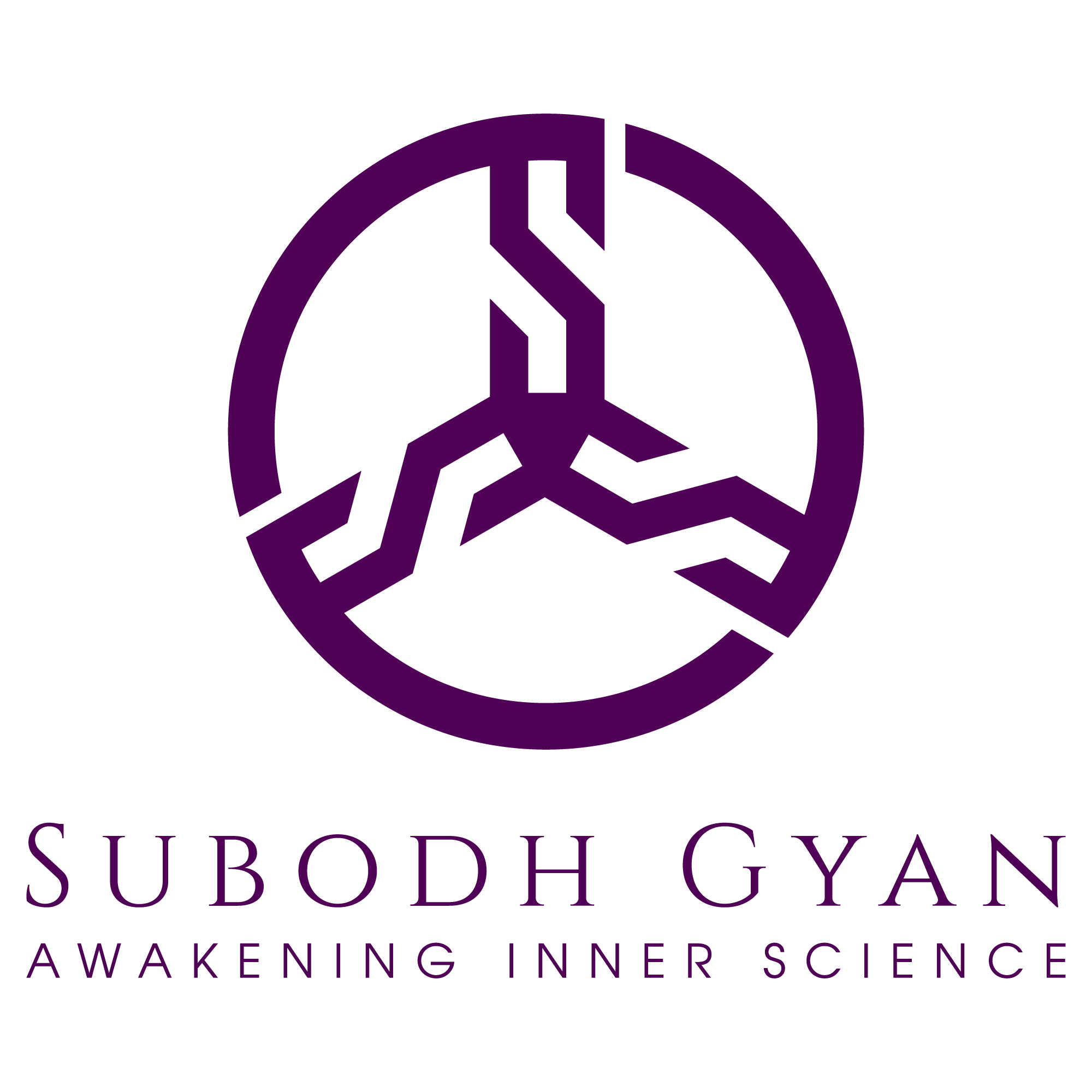The two opposing armies are equally powerful as alternately they rule the kingdom of the body. But the seeker draws courage and perseverance from the knowledge that the inevitable final victory will be on the side of virtue. Man is created by God in his own image.It is because of this spiritual inheritance that he can rightfully claim to possess the all conquering qualities of Omnipotent Spirit

Dedicated to Paramhansa Yogananda Ji
My deepest love and gratitude to Guruji for his blessings and teachings.
THREE PILLARS
The conceptual approach rests on 3 legs: Physiological, Psychological, Spiritual
THREE BATTLES INSIDE US
As per the Bhagvad Gita interpretation by Yogananda Ji in his book, ‘God talks to Arjuna’, the human body is divided into 3 parts in terms of activity and consciousness. The battle of Kurukshetra described in Gita is quite analogous to the battles we win every day in our lives on the planes of body, mind and soul. In order to evolve and find our purpose, we need to win all the three battles on the three bodily fields.
This is the material and moral struggle between good and evil, right and wrong actions on the sensory plane of the physical body. The physical body has 5 senses of perception, 5 senses of action multiplied to its 10 propensities creating the 100 sons of Kaurav. Hence this battle is played on the physical body level.
The psychological war is played on the cerebrospinal plain of Dharamkshetra Kurukshetra between the mental tendencies and inclinations of manas (mind) pulling the consciousness outward towards matter and pure discriminative tendencies of buddhi (intelligence) drawing the consciousness towards the soul. Here the main warriors of both the Kauravas and Pandavas side are residing in the 7 key centers of spine.
Only when the first 2 wars are won, then the seeker comes to play in the cerebral plain of Dharamkshetra in deep yoga meditation. The final goal is dissolving all egoism and sense of separation from God and achieve the victorious union of soul and spirit in cosmic consciousness.
-
100
Krishna (The Holy Spirit)
-
100
Vs
-
100
Bhisma (Ego), Kripa (Delusion) & Drona (Innate tendencies)
-
100
Yudhishtra (Divine discrimination)
-
100
Vs
-
100
Shalya (Pride)
-
100
Bhima (Life force control)
-
100
Vs
-
100
Shakuni (Attachment to Delusion)
-
100
Arjun (Self-control)
-
100
Vs
-
100
Karna (Attachment) & Vikarna (Repulsion)
-
100
Nakul (Self-adherence)
-
100
Vs
-
100
Dushasana (Anger) & Jayadratha (Fear of death)
-
100
Sahdeva (Self-restraints)
-
100
Vs
-
100
Duryodhana (Material Desire)


